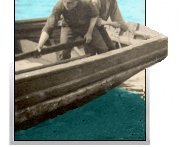 |
 |

|
Union and Politics Coaker translated the Union's early success into political advantage. From the outset he felt that the Union would have to elect its own candidates to the Newfoundland Legislature in order to effect change. Many of the Union's proposed reforms, including standardizing the cull of fish and imposing fish marketing regulations, could not be done without legislative authority. The strategy was to exercise a strong measure of influence over the Legislature through a balance of power, a principle enshrined in the FPU constitution.In the early years, Coaker flirted with Edward Morris and his conservative People's Party which had defeated Robert Bond's Liberals in 1908 and 1909; however, he turned on the administration when it failed to carry out a number of promised reforms and also rejected his appointment to a proposed fisheries board. Coaker became a frequent critic, regularly giving expression to his disgust with the government's alleged corruption through vitriolic editorials in the Advocate. In 1911 Coaker decided it was time for a more direct approach; he formed the Union Party.
Coaker presented the Union's political manifesto during the FPU's 1912 annual convention held at Bonavista's large Orange Lodge. Known as the Bonavista Platform, it was an amalgam of proposed social, economic and political reforms that would challenge the established order and transform Newfoundland society. Many of the ideas had been previously articulated by Coaker, but the 31 planks in the Bonavista Platform - from free and compulsory education to a minimum (cash) wage - were the culmination of his and the Union's ideas for legislative change necessary to improve the lives of toilers. In short order, Coaker abandoned the neutral balance of power strategy in favour of an alliance with Robert Bond's Liberals. Morris' position was too strong, and the Liberals too weak, while the Union could count on seats only in the north where it was the strongest. Morris won the election handily with 21 seats while the Liberal-Union alliance captured only 15; 13 in Union areas with 8 of those filled by Union candidates. Unhappy with the results, Bond resigned and J.M. Kent, a Liberal lawyer from St. John's, accepted Coaker's invitation to lead the Opposition. Having a Union party and its labour leader occupy such a prominent position in the Legislature must have been an astounding turn of events for many citizens of all classes. For the first time, the outport working class had seized a measure of political power from the St. John's elites. "It is not an accident we have come here," Coaker said in his maiden speech to the Legislature, "[a] revolution ... has been fought in Newfoundland. The fisherman, the toiler of Newfoundland has made up his mind that he is going to be represented on the floors of this House." (McDonald: 1987, p. 45) The National Government and Conscription The Union experienced only moderate success in implementing its reforms from the Opposition benches. Newfoundland politics was especially tumultuous over the next few years, due in large part to the conditions created by the War. Morris' popularity plummeted in the face of numerous scandals and fiscal imprudence, but in 1917 he extended his political life by convincing Coaker to join him in a National Government coalition. The coalition paved the way for some important FPU-supported reforms, not part of the Bonavista Platform, including the institution of profits and income taxes. Conscription was another. Morris later resigned and W.F. Lloyd took over as Prime Minister, but one issue - conscription - sullied Coaker's reputation and weakened the Union. Severely depleted by heavy casualties during the War and slowing enlistment rates, Britain was calling for conscription to bolster the ranks of the Newfoundland Regiment. Conscription was an unpopular issue in the outports, as in rural areas across Canada. Many young men had enlisted in the northern districts where the Union was popular - Coaker was an effective recruiter - but conscription was a different matter. The heavy toll of many lives already lost was keenly felt, and this - combined with the fact that high prices and demand for fish had improved economic conditions, creating the need for labour in the fishery - made conscription seem wholly unjust. Sending more sons away to fight would restrict the ability of any affected family to earn a livelihood. Coaker had said that there would be no conscription without a referendum but later relented, supporting the government's decision to proceed in the absence of a vote. For mainly political reasons - to maintain the stability of the National Government - Coaker sided with the establishment of St. John's, where conscription was popular, against his own people in the outports. FPU members were outraged: some FPU Councils took the unprecedented measure of passing resolutions condemning their President. The War ended before any conscripts were sent overseas, but Coaker's reputation was forever tarnished; fissures had emerged between many Union members and their President which would not be easily repaired. The events of the next few years did not help matters. |
|||||||||||||||||||||||||||||||||||||||||||||||||||||||||||||||
© 2003 - 2012 Maritime History Archive, Memorial University |